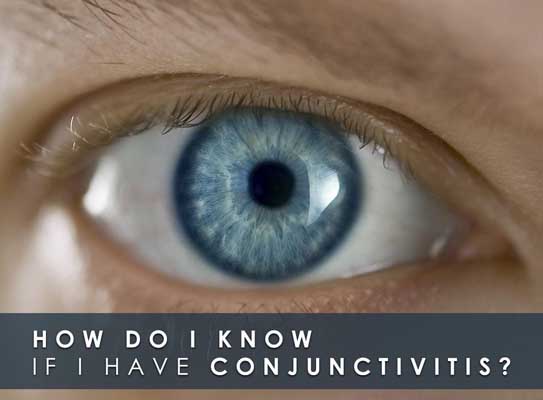How Do I Know If I Have Conjunctivitis?


Conjunctivitis (also known as pink eye) is an inflammation of the clear membrane lining your inner eyelids (the conjunctiva), generally caused by an infection or irritation. The condition is quite common, especially among children and during the warmer months, but can cause serious problems if left untreated. In today’s post, your trusted optometrist at Vienna Eyecare Center answers some common questions about conjunctivitis.


Q: What Causes Conjunctivitis?
There are three types of conjunctivitis: bacterial, allergic, and viral. The bacterial type occurs when certain microorganisms enter your eyes and infect your conjunctiva. Allergic conjunctivitis results from eye irritants like pollen, dust, and other foreign matter finding their way into your eyes. Lastly, the viral type, which is the most prevalent form, occurs when the virus responsible for the common cold enters your eyes.
Q: What Are the Symptoms?
You may feel like something is stuck in your eyes, especially upon waking up. You may also experience a watery, gritty, or even sticky feeling in your eyes, including possible clumping of your eyelashes. The white part of your eye may develop a pinkish/reddish color, accompanied by a heavy, swollen, or even burning sensation. Itchiness is a common manifestation as well. Your expert eye doctor explains that bacterial conjunctivitis can cause your eyes to produce a yellowish discharge.
Q: Is It Contagious?
The bacterial and viral conjunctivitis may easily be transferred to other people, which is why immediate treatment is so important. We suggest maintaining proper hygiene, especially through hand washing, to prevent hand-eye transmission of the eye infection. You may also wear a facemask to reduce the spread of the disease.
Q: How Is It Treated?
The three different forms of conjunctivitis require different methods of eye care treatment. We generally prescribe antibiotics for the bacterial form. The viral form typically clears up on its own without medication—though we can prescribe artificial tear drops to reduce your discomfort, and we also suggest applying a cold compress to the infected eye. When treating allergic pink eye, avoidance of the trigger allergen is a priority. We may also prescribe antihistamines or anti-inflammatory medications to relieve your discomfort.
If you have any further questions about conjunctivitis, call us at (703) 938-7633 or fill out our form.
Recent Posts
The Link Between Neck Pain and Your Vision
Neck pain is a common ailment that affects many individuals, causing discomfort and restricting daily…
Preparing for Your Eye Exam: Tips for Accurate Results
An eye exam is an essential aspect of maintaining optimal eyesight and overall eye health.…
How Stress and Your Mental Well-Being Can Impact Vision
In the bustling and picturesque city of Vienna, VA, Vienna Eyecare Center stands as a…
What You Need to Know About Dilated Eye Exams
Eye health is an essential aspect of your overall wellness, often overlooked until a problem…
Does Nearsightedness or Farsightedness Improve with Age?
Understanding the nuances of eye health, particularly how conditions like nearsightedness and farsightedness evolve with…
Are Thin High-Index Lenses Worth the Extra Money?
When it comes to choosing eyewear, particularly for those of us with strong prescriptions, we…







